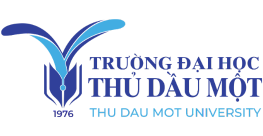References
Đỗ Quỳnh Chi. (2017). Liên kết thiếu trong chuỗi? Các chế độ thương mại và tiêu chuẩn lao động trong chuỗi cung ứng hàng may mặc, giày dép và điện tử ở Việt Nam. Việc làm bền vững trong chuỗi cung ứng toàn cầu - Vai trò của các chính sách công nghiệp, phương thức mua sắm và chính sách thương mại. Hồ Chí Minh: Trung tâm Nghiên cứu quốc tế (SCIS).
Drath, R., & Horch, A. (2014). Industrie 4.0: Hit or hype?[industry forum]. IEEE industrial electronics magazine, 56 - 58.
Gorle, P., & Clive, A. (2013). Positive Impact of. International Federation of Robotics.
Richard E., W. (2009). What is shared? A framework for understanding shared innovation within communities. Educational Technology Research and Development, 315-332.
Romero, F., & Pereira, A. (2017). A review of the meanings and the implications of the Industry 4.0 concept. Procedia Manufacturing, 1206-1214.
Salkin, C., Oner, M., Ustundag, A., & Cevikcan, E. (2018). A Conceptual Framework for Industry 4.0. New York: Springer.
Schwab, K. (2018). The Global Competitiveness Index 2017-2018 edition. Word Economic forum.
Wan , J., Yi, M., Li, D., Zhang, C., Wang, S., & Zhou, K. (2016). Mobile Services for Customization Manufacturing Systems: An Example of Industry 4.0. IEEE Access, 8977-8986.
Bates, A., & Sangra, A. (2011). Managing technology higher education: Strategies for Transforming Teaching and Learning. New York: Jossey-Bass.
Bindé, J. (2005). Towards knowledge societies. Paris: UNESCO Publishing.
Bùi Thị Ngọc Lan. (2017, 8 22). lyluanchinhtri.vn. Được truy lục từ Cách mạng công nghiệp lần thứ tư và một số vấn đề đặt ra với Việt Nam: http://lyluanchinhtri.vn/home/index.php/bai-noi-bat/item/2134-cach-mang-cong-nghiep-lan-thu-tu-va-mot-so-van-de-dat-ra-voi-viet-nam.html
BNeeta, B. (2016). Lifelong Learning in Knowledge Society. Trong P. Pablos , & R. Tennyson, Impact of Economic Crisis on Education and the Next-Generation Workforce (trang 263 - 284). Hershey: IGI Global.
Nguyên Long. (2017, 4 16). vov.vn. Được truy lục từ Cuộc cách mạng 4.0 và những tác động tới Việt Nam: https://vov.vn/kinh-te/cuoc-cach-mang-40-va-nhung-tac-dong-toi-viet-nam-614138.vov
Pananond, P. (2017). Economic Upgrading in Global Value Chains: Moving toward Thailand 4.0? Industry 4.0 and Vietnam Manufacturing. Ho Chi Minh: FES and SCIS.
Park, M.-j. (2017). Development Trajectories of Industry 4.0 in South Korea. Industry 4.0 and Vietnam Manufacturing. Ho Chi Minh : FES and SCIS.
Park, S. (2016). Development of Innovative Strategies for the Korean Manufacturing Industry by Use of the Connected Smart Factory (CSF). Procedia Computer Science, 744 - 750.
Pfeiffer, S., & Suphan., A. (2015). The Labouring Capacity Index: Living Labouring Capacity and Experience as Resources on the Road to Industry 4.0. Stuttgart: University of Hohenheim - Chair for Sociology.
Porfelid, E., & Savickas, M. (2011). Revision of the career maturity inventory: The adaptability form. ournal of Career Assessment , 355-374.
pwc. (2016). Industry 4.0: Building the digital enterprise. India: Pwc.
Roblek, V., Meško, M., & Krapež, A. (2016). A Complex View of Industry. Sage Open. doi:10.1177/2158244016653987
Saparini, H. (2017). Challenges for Indonesia in digital economic era: The absorption of high-skilled labor. Industry 4.0 and Vietnam Manufacturing. Ho Chi Minh: FES and SCIS.
Savickas, M. (2013). The 2012 Leona Tyler award address: Constructing careers—Actors, agents, and authors. The Counseling Psychologist, trang 648-662.
Saviskas, M. (2005). The theory and practice of career construction. Career development and counseling: Putting theory and research to work, trang 42-70.
Schmidt, R., Möhring, M., Härting, R.-C., Reichstein, C., Neumaier, P., & Jozinović, P. (2015). Industry 4.0 - Potentials for Creating Smart Products: Empirical Research Results. International Conference on Business Information Systems, 16-27.
Schröder, C. (2016). The challenges of industry 4.0 for small and medium-sized enterprises. Born: Friedrich-Ebert-Stiftung.
Schuh, G., Anderl, R., Gausemeier, J., Hompel, M., & Wahlster, W. (2017). Industrie 4.0 Maturity Index. Managing the Digital Transformation of Companies. Munich: National Academy of Science and Engineering.
Schumacher, A., Erol, S., & Sihn, W. (2016). Industrie 4.0 Maturity Index. Managing the Digital Transformation of Companies. Procedia CIRP, 161-166.
Skilton , M., & Hovsepian, F. (2018). The 4th Industrial Revolution Impact. Trong M. Skilton , & F. Hovsepian , The 4th Industrial Revolution: Responding to the Impact of Artificial Intelligence on Business (trang 3-28). New York: Palgrave Macmillan.
Staufen, A. (2015). China – Industry 4.0 Index 2015. Shanghai: Staufen A. G.
Stock, T., & Seliger, G. (2016). Opportunities of sustainable manufacturing in industry 4.0. Procedia Cirp, 536 - 541.
Sulistiani, W., & Handoyo, S. (2018). Career Adaptability: The Influence of Readiness and Adaptation Success in the Education Context: a Literature Review. Social Science, Education and Humanities Research, 133, 195-205.
Symaco, L. (2013). Education and knowledge society in the Asia-Pacific. Asia Pacific Journal of Education, 133-139.
Symaco, L. P. (2012). Higher Education in the Philippines and Malaysia: The learning region in the age of knowledge-based societies. Journal of International and Comparative Education (JICE), 40-51.
Terence, M. (1994). Politics, Markets and Schools: The Central Issues. Trong M. Terence, & D. Bridges, Education and the Market Place (trang 153 - 168). London: Falmer Press.
Tian, Y., & Fan, X. (2014). Adversity quotients, environmental variables and career adaptability in student nurses. Journal of Vocational Behavior, 251-257.
Truong, M. V., & Nguyen, V. A. (2017). The Fourth Industrial Revolution: A Vietnamese Discourse. Ha Noi: Friedrich Ebert Stiftung Vietnam.
Veza, I., Mladineo, M., & Peko, I. (2015). Analysis of the current state of Croatian manufacturing industry with regard to industry 4.0. Croatian Association of Production Engineering, 3-6.
Vũ Xuân Hùng. (2017, 1 1). www.nhandan.com.vn. Được truy lục từ thách thức lớn với thị trường lao động: http://www.nhandan.com.vn/cuoituan/doi-song-xa-hoi/item/31719802-thach-thuc-lon-voi-thi-truong-lao-dong.html
Vương, Đ. Q. (2016). Chuyển dịch cơ cấu kinh tế Thành phố Hồ Chí Minh tầm nhìn đến 2025. Tài chính. Đã truy lục 25 8, 2016, từ http://tapchitaichinh.vn/nghien-cuu-trao-doi/chuyen-dich-co-cau-kinh-te-tp-ho-chi-minh-tam-nhin-den-nam-2025-86804.html
Wang, Z., & Fu, Y. (2015). Social support, social comparison, and career adaptability: A moderated mediation model. Social Behavior and Personality: an international journal, 649-659.
WEF. (2018, 10 16). www.weforum.org. Được truy lục từ The Global Competitiveness Report 2018: https://www.weforum.org/reports/the-global-competitveness-report-2018























